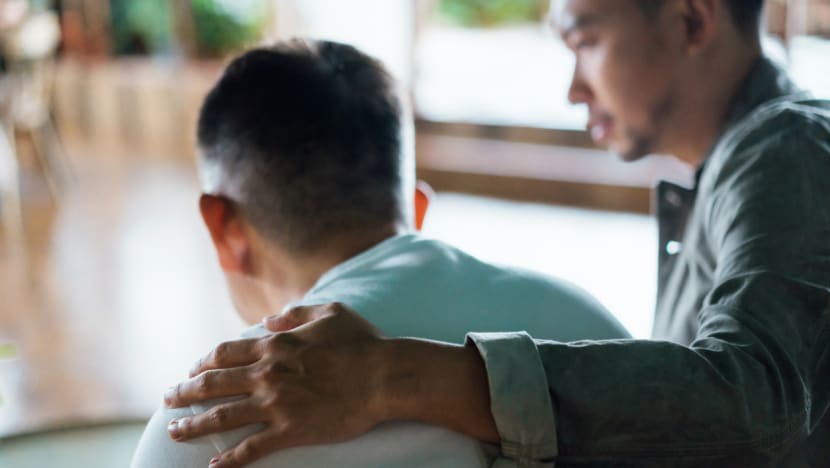More hospitals, polyclinics, GPs to provide mental health services under new national strategy
The national mental health and well-being strategy is “holistic” and aims to address mental well-being through health, social and education settings.

The national mental health and well-being strategy will address mental well-being through health, social and education settings. (File photo: iStock)
- A new tiered care model will organise mental health services according to the severity of an individual's needs, across four tiers spanning health, social and education settings
- An accompanying competency framework will guide service providers on the required knowledge and skills to provide support at each tier of care
- Rather than focus on treating mental disorders, at least equal emphasis should be placed on preventive care under a holistic strategy, says MOH and MSF
SINGAPORE: Individuals seeking mental health services will be able to receive help from more hospitals, polyclinics and general practitioners (GPs), as part of the national mental health and well-being strategy launched on Thursday (Oct 5).
To ensure adequate hospital care, the Institute of Mental Health (IMH) will enhance its inpatient psychiatric bed and rehabilitation capacity, while the redeveloped Alexandra Hospital will also offer “expanded psychiatric services”, according to a joint press release by the Ministry of Health (MOH) and the Ministry of Social and Family Development (MSF).
In addition, two new psychiatric nursing homes and a psychiatric rehabilitation home are slated to be developed by 2030 to increase long-term care facilities.
Also by 2030, all new polyclinics are expected to provide mental health services. This is up from 17 of the existing 24 polyclinics that provide these services today.
More general practitioners (GPs), in addition to over 400 currently, will also be trained to provide mental health services like assessment and medical treatment.
These improvements to Singapore’s mental health ecosystem are part of the strategy’s focus to expand capacity of mental health services, the ministries said.
The strategy, which was launched by the inter-agency taskforce on mental health and well-being, also comprises three other focus areas:
- Enhancing capabilities of service providers for early identification and intervention
- Promoting mental health and well-being
- Improving workplace mental health and well-being
“An effective healthcare strategy for mental health needs to be holistic. Rather than focusing attention on the treatment of mental disorders, at least equal emphasis should be placed on preventive care,” said MOH and MSF.
ENHANCING CAPABILITIES OF SERVICE PROVIDERS
On Thursday, Senior Minister of State for Health Dr Janil Puthucheary outlined details of a new tiered care model for mental health support, which he first introduced in October last year.
“Not every mental health issue needs to be addressed by psychiatrists … So the tiered care model organises our mental health services according to the severity of needs, across the health, the social and the educational settings,” said Dr Puthucheary, who also chairs the inter-agency taskforce.
“We want to make sure that we use our resources and services appropriately to provide care access to all the clients, avoid over-medicalising these mental health issues and ultimately reduce the stigma.”
Individuals seeking mental health services will be able to receive help from more hospitals, polyclinics and general practitioners (GPs), as part of the national mental health and well-being strategy launched on Thursday (Oct 5). Sabrina Ng with more.
.png?itok=W4Eco_ky)
At its lowest tier, the 4-tier model will cover community-led mental health promotion, self-help and peer support, while its highest tier encompasses the most intensive level of care in hospitals and specialist clinics.
The model will be accompanied by the National Mental Health Competency Training Framework, which guides service providers on the “requisite” knowledge and skills they should attain in each tier of care, said MOH and MSF.
For example, under the second tier that caters to individuals with low mental health needs, service providers are expected to know the warning signs of a mental health crisis including suicidal intent among other expected knowledge.
At the same time, they are expected to possess the skill to apply techniques that may help de-escalate a mental health crisis.
To enable early identification and intervention of mental health issues, more than 90,000 volunteers and frontline personnel from government agencies, community partners and mental health service providers have been trained in mental health awareness. These frontline personnel will also be equipped with skills to provide psychological first aid.
About 10,000 more frontline personnel will be trained in the next two years, while 1,500 frontline social service professionals will be upskilled, the press release said.
CRISIS SUPPORT, MATERNAL HEALTH SERVICES
Beyond expanding capacity of mental health services in a medical setting, crisis support services remain a “key feature” to support individuals at risk of suicide. IMH is currently piloting a crisis response team to support police officers in managing suicidal cases by conducting “rapid assessments” and giving “prompt support”, said MOH and MSF.
“Not all individuals with suicide risk have a mental health condition. At least half of the referrals for suicidal youths to IMH do not have any mental health conditions. Instead, triggers are usually related to psychosocial stressors such as difficult interpersonal relationships.”
For maternal health, the two ministries added that a universal antenatal depression screening has been introduced as part of routine care for pregnant women at KK Women’s and Children’s Hospital.
The Health Ministry will also roll out services for quicker access to mental health support, including a national mental health helpline and text service.
A platform will also be developed to facilitate referrals of individuals between mental health service providers for better care coordination.
“MORE SCOPE” TO HIRE, SUPPORT INDIVIDUALS IN RECOVERY
Meanwhile in the workplace, employment support agencies play a “key role” by helping individuals with mental health conditions secure meaningful jobs, which help regain their confidence and reintegrate them into society, said MOH and MSF.
At the moment, three such agencies provide vocational training and employment support for individuals with mental health conditions. But there is “still scope for more employers to hire and support individuals with mental health conditions in recovery”, the ministries noted.
As part of recommendations from the Tripartite Committee on Workplace Fairness, legislation will be introduced prohibiting workplace discrimination, including discrimination “based on mental health conditions”.
NORMALISING MENTAL HEALTH CONVERSATIONS
Finally, achieving a “mentally resilient population” and preventing the onset of mental health conditions where possible requires promoting mental well-being and encouraging “early help-seeking”, said MOH and MSF.
This requires the normalisation of conversations around mental health and well-being and the improvement of mental health literacy on all fronts.
Senior Parliamentary Secretary for Social and Family Development Eric Chua, who has been trying to push for psychological first aid within the community, shared on a personal note that “it really behoves us, as public office holders, to take the lead … in terms of initiating those conversations” around mental health.
“Because conversations do its work in dispelling some of the stigma, and I think that is important. So that sustained and hopefully increased momentum over time is important,” he said.
Minister of state for Culture, Community and Youth, Alvin Tan, added that some Members of Parliament have also shared their personal mental health journeys online.
“I think it's a really important point that if you want to debunk some of the myths, you wanted to de-stigmatise that, some of us who are in the public eye can and have already in fact done so,” said Mr Tan, who is trained as a paracounsellor.
“By leading with vulnerability, that helps to give courage to those who are struggling with the same challenges to also take a step to say, it's okay, in fact, to reach out.”
In schools, the Education Ministry will implement initiatives to build mental and socio-emotional resilience in preschoolers. A parents’ toolbox is also being developed to “empower and equip parents with personalised knowledge and skills to build strong parent-child relationships and strengthen their children’s mental well-being and resilience”.
In response to a question by CNA about what mental health support is provided for parents and caregivers of special needs children and youth, Minister of State for Education Gan Siow Huang acknowledged that they “may need more than just the basic support”.
She added that social service agencies, as well as counsellors and educators in special education schools, also work closely with these caregivers to provide “more tailored support”.
There will also be more Enabling Services Hubs built across the island to provide respite for caregivers of those with special needs, added Mr Chua.

















